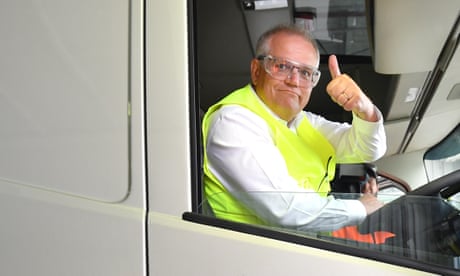Extract from The Guardian
National Australia Bank commits to cap lending to oil and gas at US$2.4bn but Market Forces calls it a ‘cynical greenwashing exercise’

Last modified on Tue 9 Nov 2021 12.45 AEDT
A new commitment from NAB to limit funding for oil and gas projects is full of loopholes and will allow the bank to continue lending to fossil fuel businesses, environmental activists say.
The bank on Tuesday said it would cap its lending to oil and gas at US$2.4bn – a figure that NAB’s chief executive, Ross McEwan, said the bank was currently “a couple of hundred million below”.
NAB said it would reduce its exposure from 2026 in line with the International Energy Agency’s net zero by 2050 roadmap.

It will only directly finance new gas extraction projects in Australia “where it plays a role in underpinning national energy security” and will not directly finance gas projects outside the country, the bank said in a new policy released alongside its 2021 financial results.
The bank said it would also continue to lend to integrated liquefied natural gas projects in Australia, Papua New Guinea and elsewhere under the new cap.
Jack Bertolus, a campaigner at activist investor group Market Forces, said NAB’s new commitment was “really disappointing” and contained “tonnes and tonnes of loopholes and room for the bank to continue as usual”.
“The IEA’s report provides clear red lines around the projects that can’t proceed under that scenario and the policy doesn’t reflect that whatsoever,” he said.
“NAB should withdraw its commitment to net zero by 2050 until or unless it can put in place some meaningful commitment that would align it with that outcome.”
He said the pledge allowed NAB to continue funding oil and gas indirectly through general corporate lending that was not tied to a specific project, as well as allowing new projects to be directly funded “under the loosely defined guise of national interest”.
“It’s basically NAB allowing itself to continue to fund the fossil fuel sector,” he said. “It’s just cover, it’s a cynical greenwashing exercise.”
McEwan said NAB was the first big bank to commit to reducing oil and gas lending.
“We’ll start moving very quickly to spending more time and energy on the renewable sector as we have committed to do so,” he said.
He said the bank was using the US$2.4bn figure, which is the average exposure over the past three years, because business had been disrupted by the Covid-19 pandemic.
“We have no intention of being involved in any greenwashing whatsoever, our intent is to participate in helping Australia to get into a much better position from a carbon emission perspective,” he said.
McEwan also defended NAB’s decision to continue funding the Port of Newcastle, which is dependent on coal exports, when ANZ pulled out in February.
He pointed to reports that the port could be part of a green hydrogen project.
“If people hadn’t backed that port, I don’t think you’d be in this position,” he said. “So I think it’s certainly vindicated those who did get involved in helping Port of Newcastle make that transition to a better place.”
The port also wants to reduce its dependence on coal by building a container terminal, something that is currently uncommercial due to an agreement the NSW government struck with two ports it sold off, Port Botany and Port Kembla, that imposes a penalty if a significant amount of containers flows through Newcastle.
NAB’s cash earnings for the year were up 38.6% to $6.56bn.
No comments:
Post a Comment